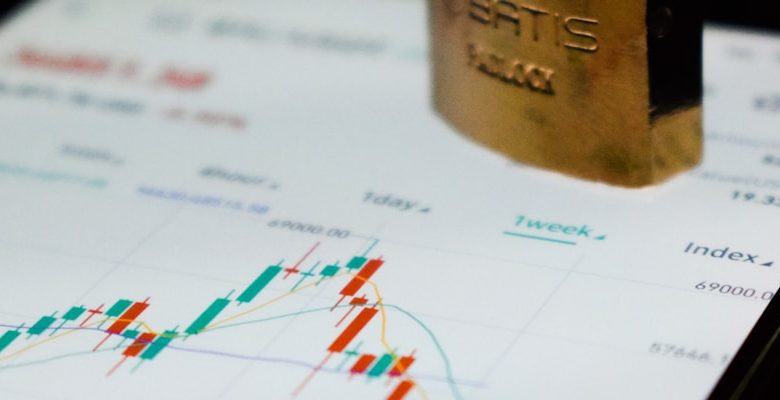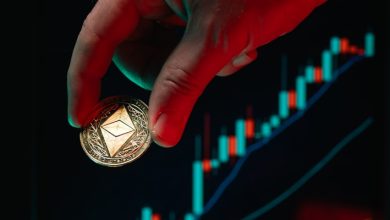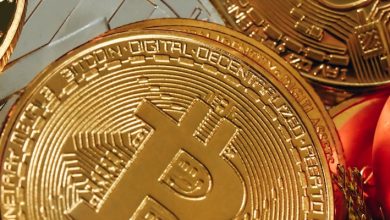The Role of Decentralized Exchanges in Modern Trading

- Understanding the concept of decentralized exchanges
- Advantages and drawbacks of using decentralized exchanges
- Comparison between centralized and decentralized exchanges
- The impact of decentralized exchanges on traditional trading platforms
- Regulatory challenges facing decentralized exchanges
- The future of trading: decentralized exchanges leading the way
Understanding the concept of decentralized exchanges
Decentralized exchanges, also known as DEXs, are platforms that allow users to trade cryptocurrencies directly with one another without the need for a central intermediary. This concept of decentralization is a key feature of blockchain technology and is aimed at reducing the reliance on traditional financial institutions.
One of the main advantages of decentralized exchanges is the increased security they offer. By allowing users to retain control of their funds at all times, DEXs eliminate the risk of hacks or theft that can occur when using centralized exchanges. This enhanced security is particularly appealing to those who prioritize the safety of their investments.
Another important aspect of decentralized exchanges is their ability to promote financial inclusion. By providing a platform for peer-to-peer trading, DEXs enable individuals from around the world to participate in the cryptocurrency market, regardless of their location or background. This democratization of access to trading opportunities is a significant step towards a more inclusive financial system.
Furthermore, decentralized exchanges are often praised for their transparency and immutability. Since all transactions on a DEX are recorded on the blockchain, they can be easily verified by anyone at any time. This level of transparency helps to build trust among users and ensures that the integrity of the trading process is maintained.
In conclusion, understanding the concept of decentralized exchanges is essential for anyone looking to navigate the modern trading landscape. By embracing decentralization, security, inclusivity, and transparency, DEXs are poised to play a crucial role in shaping the future of finance.
Advantages and drawbacks of using decentralized exchanges
Decentralized exchanges offer several advantages over centralized exchanges, making them an attractive option for modern traders. One key advantage is the enhanced security provided by decentralized exchanges. Since user funds are not held in a central wallet, they are less susceptible to hacking or theft. Additionally, decentralized exchanges do not require users to provide personal information, offering a higher level of privacy and anonymity.
Another advantage of decentralized exchanges is their ability to facilitate peer-to-peer trading without the need for intermediaries. This can lead to lower trading fees and faster transaction times, as there is no central authority to slow down the process. Furthermore, decentralized exchanges are often more resistant to censorship, as there is no single point of control that can be targeted by regulators or governments.
Despite these advantages, decentralized exchanges also have some drawbacks that traders should be aware of. One major drawback is the lack of liquidity on decentralized exchanges compared to centralized exchanges. This can result in wider spreads and lower trading volumes, making it more difficult to execute large orders at favorable prices.
Another drawback of decentralized exchanges is the potential for smart contract vulnerabilities. Since decentralized exchanges rely on smart contracts to facilitate trades, any bugs or vulnerabilities in the code can lead to loss of funds. Traders should exercise caution and conduct thorough research before using a decentralized exchange to minimize this risk.
In conclusion, decentralized exchanges offer unique advantages such as enhanced security, privacy, and peer-to-peer trading. However, traders should also consider the drawbacks such as lower liquidity and smart contract vulnerabilities when deciding whether to use a decentralized exchange for their trading activities.
Comparison between centralized and decentralized exchanges
When comparing centralized and decentralized exchanges, it is important to understand the key differences between the two. Centralized exchanges are traditional platforms where transactions are managed by a central authority. On the other hand, decentralized exchanges operate on a peer-to-peer network, allowing users to trade directly with one another without the need for a central authority.
Centralized exchanges offer a higher level of liquidity and faster transaction speeds compared to decentralized exchanges. This is because centralized exchanges have a large number of users and typically offer a wide range of trading pairs. However, centralized exchanges are also more susceptible to hacks and security breaches due to their centralized nature.
Decentralized exchanges, on the other hand, offer greater security and privacy as users retain control of their funds throughout the trading process. Additionally, decentralized exchanges do not require users to undergo a lengthy verification process, making it easier for users to start trading quickly. However, decentralized exchanges may have lower liquidity and slower transaction speeds compared to centralized exchanges.
In conclusion, both centralized and decentralized exchanges have their own set of advantages and disadvantages. Centralized exchanges offer higher liquidity and faster transactions, while decentralized exchanges offer greater security and privacy. Ultimately, the choice between the two types of exchanges depends on the individual needs and preferences of the trader.
The impact of decentralized exchanges on traditional trading platforms
Traditional trading platforms have long been the go-to choice for investors looking to buy and sell assets. However, the rise of decentralized exchanges (DEXs) has brought about a shift in the trading landscape. Decentralized exchanges operate without a central authority, allowing users to trade directly with one another using smart contracts. This peer-to-peer model eliminates the need for intermediaries, reducing fees and increasing transparency in the trading process.
One of the key impacts of decentralized exchanges on traditional trading platforms is the disintermediation of transactions. By cutting out the middlemen, DEXs enable users to trade assets directly, leading to lower costs and faster transactions. This has forced traditional platforms to rethink their fee structures and business models to remain competitive in the evolving market.
Another significant impact of DEXs on traditional trading platforms is the enhanced security and privacy they offer. Decentralized exchanges do not hold users’ funds, reducing the risk of hacks and theft. Additionally, transactions on DEXs are recorded on the blockchain, providing a transparent and immutable ledger of all trades. This increased security and privacy have attracted users looking for a more secure trading environment.
Furthermore, decentralized exchanges have also democratized access to trading by removing barriers to entry. Traditional platforms often have strict requirements for account registration and verification, limiting access to certain users. DEXs, on the other hand, allow anyone with an internet connection to trade assets, empowering individuals who may not have had access to traditional markets before.
Overall, the impact of decentralized exchanges on traditional trading platforms has been transformative. DEXs have disrupted the traditional trading landscape by offering lower fees, increased security, and improved accessibility. As the popularity of decentralized exchanges continues to grow, traditional platforms will need to adapt to meet the changing needs and expectations of traders in the modern market.
Regulatory challenges facing decentralized exchanges
Decentralized exchanges face several regulatory challenges in the modern trading landscape. One of the main issues is the lack of clear guidelines from regulatory bodies on how these platforms should operate. This ambiguity can lead to uncertainty for users and potential legal risks for decentralized exchanges. Additionally, compliance with anti-money laundering (AML) and know your customer (KYC) regulations can be difficult for decentralized exchanges due to their peer-to-peer nature, making it challenging to monitor and enforce these requirements effectively.
Another regulatory challenge for decentralized exchanges is the potential for regulatory crackdowns or bans in certain jurisdictions. Some countries have already taken measures to restrict or ban decentralized exchanges due to concerns about illicit activities such as money laundering or tax evasion. This regulatory uncertainty can limit the growth and adoption of decentralized exchanges, as users may be hesitant to engage with platforms that operate in a legal gray area.
Furthermore, decentralized exchanges also face challenges in terms of investor protection and market integrity. Without centralized oversight, it can be difficult to ensure fair trading practices, prevent market manipulation, and protect users from fraudulent activities. This lack of regulatory oversight can erode trust in decentralized exchanges and hinder their mainstream adoption by institutional investors and traditional financial institutions.
Overall, navigating the regulatory landscape is a significant challenge for decentralized exchanges. As the popularity of decentralized finance (DeFi) continues to grow, regulatory bodies will likely increase their scrutiny of these platforms, requiring decentralized exchanges to find innovative solutions to comply with regulations while maintaining the core principles of decentralization and privacy.
The future of trading: decentralized exchanges leading the way
Decentralized exchanges are revolutionizing the way trading is done in the modern financial landscape. These platforms offer a more secure and transparent alternative to traditional centralized exchanges. With decentralized exchanges, users have full control over their funds and transactions, eliminating the need for intermediaries and reducing the risk of hacking and fraud.
One of the key advantages of decentralized exchanges is their ability to operate 24/7 without any downtime. This means that traders can buy and sell assets at any time, without being restricted by the opening hours of a centralized exchange. Decentralized exchanges also offer lower fees compared to their centralized counterparts, making them a more cost-effective option for traders.
In addition to increased security and lower fees, decentralized exchanges also promote financial inclusion by allowing users from all over the world to participate in trading activities. This opens up new opportunities for individuals who may not have access to traditional banking services or who are excluded from the traditional financial system.
As decentralized exchanges continue to gain popularity and adoption, they are expected to play a significant role in shaping the future of trading. With their innovative technology and user-centric approach, decentralized exchanges are leading the way towards a more decentralized and democratized financial ecosystem. Traders who embrace these platforms stand to benefit from increased security, lower fees, and greater accessibility to global markets.



